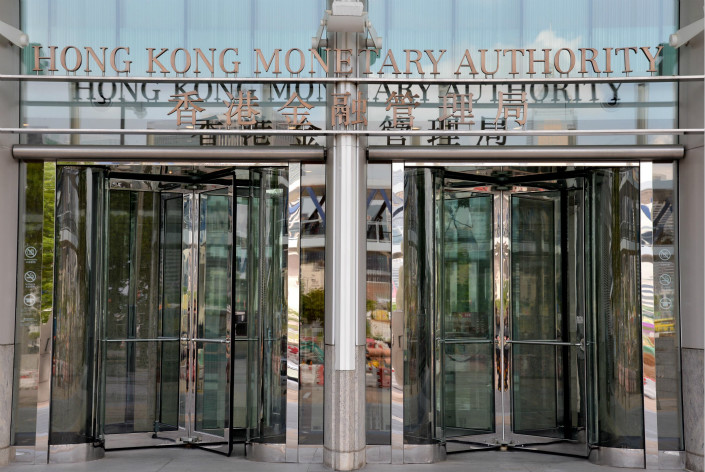Hong Kong Considers Blockchain-Based Trade-Financing System

Hong Kong is looking into building a trade-financing system using blockchain technology, a senior official said.
Blockchain, the decentralized encryption technology behind cryptocurrencies, could provide “great benefits” to trade finance in countries participating in China’s Belt and Road initiative, said James Henry Lau, Hong Kong’s Secretary for Financial Services and the Treasury, at a forum Friday.
Blockchain works by automatically recording transactions in inerasable digital ledgers distributed across a network in which all data is visible to every member of the network and transactions don’t require a central authority’s approval.
This technology could cut the huge input of human resources and time that trade financing traditionally requires, reduce chances of fraud and lower companies’ investment costs through more efficient settlements, according to Lau.
Trade along the Belt and Road is mostly conducted by small and medium-sized enterprises, so blockchain’s distributed ledger technology could help by cutting out the need for a central organization and middlemen, he added.
The Belt and Road initiative, aimed at boosting trade links between China and partners around the world, was launched by President Xi Jinping in 2013 and now includes 69 countries, regions, and international organizations. In September, Hong Kong publications reported that the Special Administrative Region’s monetary authority was planning to make equity investments in a number of Belt and Road infrastructure projects.
A Belt and Road system would not be Hong Kong’s first foray into blockchain-powered trade finance — in March, the region’s monetary authority completed a proof-of-concept project that demonstrated how blockchain can be used to digitize contracts and cut the risk of fraud and duplicate transactions. The project was run in collaboration with professional services company Deloitte and six banks, including Bank of China (Hong Kong) Ltd. and The Bank of East Asia.
On Oct. 25, the central banks of Hong Kong and Singapore signed an agreement to work together on a blockchain technology project aimed at optimizing trade and financing between the two financial hubs.
Even as it clamps down on blockchain-based cryptocurrencies, China’s central bank is also exploring how it can use the technology to build its own digital fiat currency combining the efficiency of cryptocurrency transactions with the regulatory oversight of a traditional currency.
Contact reporter Teng Jing Xuan (jingxuanteng@caixin.com)

- 1Cover Story: China Carves Out a Narrow Path for Offshore Asset Tokenization
- 2Drownings Shake Chinese Enthusiasm for Travel to Russia
- 3Li Ka-Shing’s Port Empire Hit by Forced Takeover Amid Panama Legal Dispute
- 4Over Half of China’s Provinces Cut Revenue Targets
- 5In Depth: China’s Mutual Fund Industry Faces Overhaul After a Banner 2025
- 1Power To The People: Pintec Serves A Booming Consumer Class
- 2Largest hotel group in Europe accepts UnionPay
- 3UnionPay mobile QuickPass debuts in Hong Kong
- 4UnionPay International launches premium catering privilege U Dining Collection
- 5UnionPay International’s U Plan has covered over 1600 stores overseas





